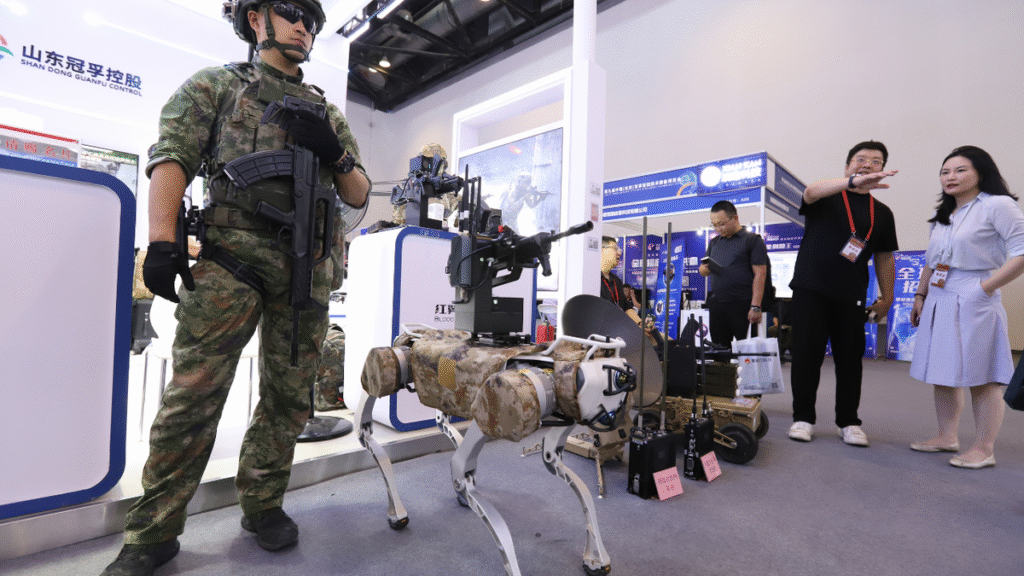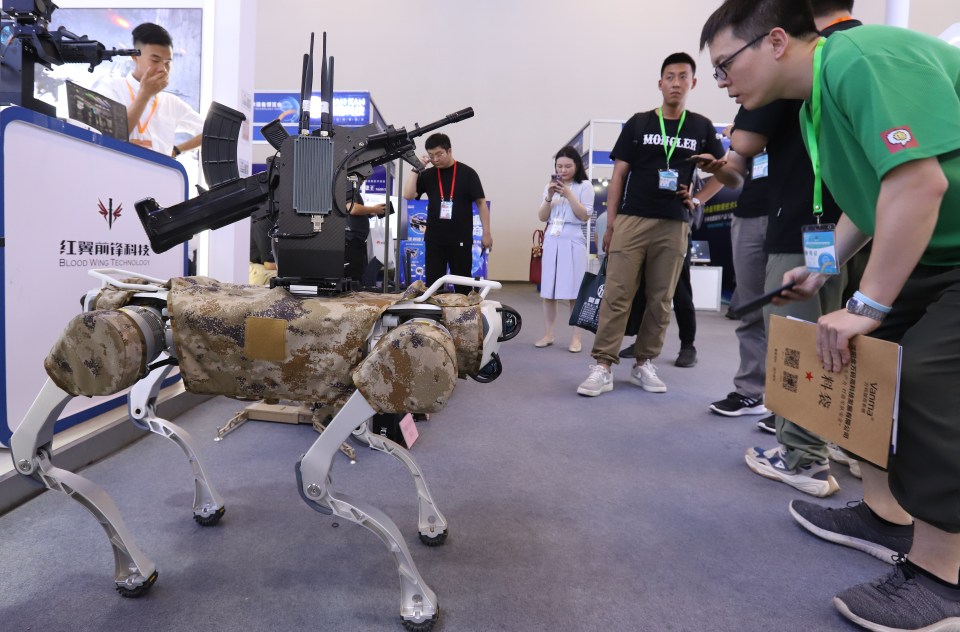As artificial intelligence transforms modern warfare, a critical question rises to the forefront how ethical is it to use humanoid robots in military operations? In a rare public warning, China’s military has called for urgent attention to military robot ethics, citing serious moral concerns about autonomous humanoid fighters on the battlefield.
On Thursday, the People’s Liberation Army (PLA) Daily the official newspaper of China’s armed forces published an editorial that emphasized the need for “ethical and legal research” before deploying humanoid robots. This signals China’s awareness of a rapidly unfolding dilemma that the global defense community can no longer ignore.
Humanoid Robots in Warfare: Technology vs. Ethics
The integration of humanoid robots into national defense systems is no longer science fiction. From logistics support to front line combat simulations, military robot ethics have become an urgent global debate. These robots mimic human physical capabilities and can be equipped with weaponry, surveillance systems, and AI decision making software.
But while the technology surges ahead, ethical considerations lag dangerously behind.
Dr. Rebecca Lin, a military ethics researcher at the University of Hong Kong, notes, “Just because we can develop robot soldiers doesn’t mean we should. These systems challenge every convention of accountability, emotion, and judgment in warfare.”
Her concern is echoed across borders. As militaries automate warfare, decisions about life and death may be transferred to algorithms, potentially devoid of moral context.

Russia’s FEDOR and the Global Robot Race
The world has already seen prototypes of humanoid military robots. Russia’s FEDOR (Final Experimental Demonstration Object Research) is a humanoid robot that can drive vehicles, lift weights, and shoot guns with both hands.
However, FEDOR’s developers claimed it was not designed for combat a claim that raised eyebrows globally. The fear is that military investment in such robots will shift toward offensive capabilities, leading to a dangerous arms race with little regulation.
This is where military robot ethics become critical. Without global ethical frameworks, nations may prioritize technological superiority over human rights and moral judgment.
Can Robots Make Ethical Decisions?
Ethicists argue that morality in combat often hinges on emotions compassion, hesitation, and regret. Robots do not feel. They calculate. Professor Marcus Hayes, author of Warfare in the Age of AI, believes that AI driven robots could escalate conflicts. “Robots may follow orders flawlessly, but without moral understanding, they can cause indiscriminate harm,” he says.
He adds that accountability becomes blurred. “If a robot kills a civilian, who is responsible? The programmer? The military commander? Or the machine itself?”
Such questions underline the foundational flaw in current military robot ethics frameworks they simply don’t exist yet.
Human Perspective: The Veteran’s Voice
Liu Zhang, a retired Chinese infantry soldier, believes humanoid fighters might lack the soul that defines a soldier. “In my years of service, sometimes not pulling the trigger saved lives. Robots won’t feel that.”
He recounts a mission in 2008 where a split second emotional decision helped avoid collateral damage. “Will robots understand hesitation? Or grief? Or mercy? I doubt it,” Zhang states. His voice represents a ground level fear that technology might outpace morality and that human instinct may become obsolete.

Global Responses and the Need for Regulation
China’s recent publication may be a subtle call for international dialogue. It reflects Beijing’s recognition that military robot ethics must be defined now, not later.
The United Nations has already initiated preliminary discussions on lethal autonomous weapons systems (LAWS), but a comprehensive global treaty is yet to emerge.
In the meantime, AI researchers, military strategists, and ethicists urge national governments to set up ethics boards and AI control policies before robots are granted lethal autonomy.
A Call for Ethical Warfare
The warning from China’s military mouthpiece isn’t just rhetoric it’s a timely wake up call. As humanoid robots inch closer to deployment, military robot ethics must evolve at the same pace.
The question is no longer about if robots will be used in combat, but how responsibly we can manage them. The choice before humanity is clear
lead with ethics or be led by machines without them.

1 thought on “Military Robot Ethics: China Warns of Moral Dangers of Humanoid Fighters in Warfare”